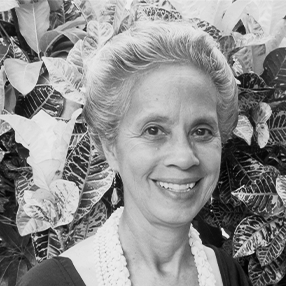Lei Kukui, Lei Kuahu
The impermanence of lei
On dark altars of stone
A dream of lei kukui
Placed on the kuahu
Coils of lush green leaves
Fragrant leaf stems neatly knotted
Plaited along a backspine
Joined one to the other
Bound by a fast symmetry
Calling forth
The spectral presences
Of our gods
We seek your permission,
That you will hear
Our importunate prayers
Our songs through the far forests
And as with birds
Contemn their dark silences with light;
We seek your companionship,
On our right shoulders and left
Above us and below
The surround of your playful
And somber accompaniments
Your presences in our gardens
Your residencies on our altars;
We seek wakefulness,
That we long slumbering
Yet evanescent
Will become luminous
As leaves on brightened paths;
We seek your acceptance,
That the hidden canopies
Will reveal themselves
Each bright leaf
Giving itself of its own accord;
We seek resonance,
From the tops of our heads
To the bottoms of our feet
From the center of our chests
To the leaf tips of our hands
We seek all of these things—
A purer correspondence
With the radiance of leaves.
Copyright © 2022 by Mahealani Perez-Wendt. Originally published in Poem-a-Day on May 16, 2022, by the Academy of American Poets.
“This poem is dedicated to and written for my kumu hula, Kau`i Kanakaole. It describes the making of a kukui leaf lei, which both adorns the dancer and is placed on the kuahu hula, or altar. The forest is an important part of hula. The ferns, trees, vines, leaves, and flowers are the kinolau, embodiments of hula gods and spirits. As we gather each frond and leaf, we are taking the bodies of our deities. We honor and respect the greenery as we weave our lei and decorate our bodies. When we dance, we become the trees. We are the flowers. We are ferns, vines, leaves. The significance of kukui is enlightenment, as the oil was used for candle making and the word means light. The foregoing is excerpted in part from a website of Kau`i's uncle and hula practitioner, Sig Zane.”
—Mahealani Perez-Wendt

